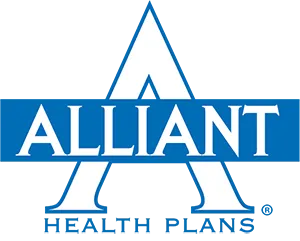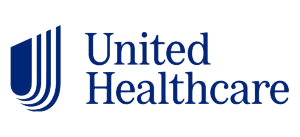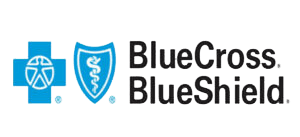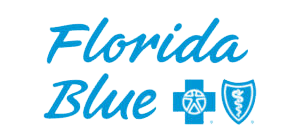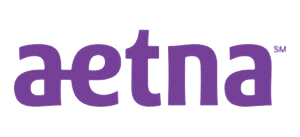Amphetamine Addiction Treatment Center in Rome, GA
Amphetamine Addiction Treatment Center in Rome, GA

Fairland Recovery Center has an amphetamine addiction treatment center in Rome, GA, that offers help for people struggling with amphetamine addiction. The treatment facility has a stellar drug rehab program near Atlanta, which provides easy access to various areas. Fairland Recovery Center uses different methods to help patients recover from substance use.
Our treatment center in Rome, GA, offers both inpatient and outpatient programs for amphetamine addiction. Inpatient care lets patients stay at the center full-time. Outpatient care allows people to live at home and visit the center for treatment.
Fairland Recovery Center offers therapy and counseling to treat addiction. We also teach clients ways to avoid drug use in the future. In some instances, we may use medicine to help with withdrawal symptoms. The goal is to help people stop using amphetamines and live healthier lives.
Understanding Amphetamine Addiction
Amphetamine addiction is a complex issue that affects both the brain and behavior. It can lead to severe health problems and social consequences. Recognizing the signs and understanding the science behind this addiction is crucial for effective treatment.
The Science of Amphetamine Dependence
Amphetamines increase dopamine levels in the brain, which causes intense feelings of pleasure and energy. Over time, the brain adapts to these higher dopamine levels, craving more and more of the substance to achieve the same effects. This is called tolerance. When this happens, the brain also starts to rely on amphetamines to function normally.
When a person stops using amphetamines, they may feel depressed and tired. These withdrawal symptoms can be intense and push people to keep using the drug, thus creating the addiction cycle.
Long-term use can damage brain cells that produce and use dopamine, leading to lasting and sometimes irreversible, changes in mood and behavior.
Identifying Amphetamine Addiction
One of the key steps in addiction treatment is spotting amphetamine addiction through specific signs:
- Increased energy and alertness
- Decreased appetite and weight loss
- Mood swings and irritability
- Sleep problems
- Rapid or irregular heartbeat
Behavioral changes may also be common:
- Neglecting responsibilities
- Lying or stealing to get the drug
- Continuing use despite negative consequences
- Isolation from family and friends
If you or a loved one shows these signs, it may be time for professional help. Unfortunately, addiction often comes with other mental health issues as well. Getting treatment for both is essential for recovery. That is why Fairland Recovery Center prioritizes dual diagnosis treatment, working with each client to determine the root cause of the amphetamine addiction.
Available Treatment Programs
There are several options for amphetamine addiction treatment at Fairland Recovery Center. These programs cater to different needs and levels of care required for recovery.
Inpatient Care for Amphetamine Addiction
Inpatient care provides 24/7 support for those with severe addiction. Patients live at the facility during treatment. This intensive approach includes:
- Medically supervised detox
- Individual and group therapy sessions
- Structured daily routines
- Holistic activities like yoga or art therapy
Outpatient Treatment Options
Though we offer sober living as our form of inpatient care, we are known for our outpatient programs that allow patients to live at home while receiving treatment. These are suitable for milder cases or as follow-up care after inpatient treatment.
Key features include:
- Flexible scheduling
- Individual counseling
- Group therapy sessions
- Addiction education
Patients attend sessions several times a week. This option helps maintain daily responsibilities while getting help.
Intensive Outpatient Programs (IOPs)
IOPs offer a middle ground between inpatient and standard outpatient care. They provide more structure and support than regular outpatient programs.
Typical IOP components:
- 3-5 sessions per week, 2-4 hours each
- Group and individual therapy
- Skill-building workshops
- Relapse prevention training
Fairland Recovery Center offers various IOP options to fit different schedules and needs. Our team works with each client to determine the best treatment options for them.
Partial Hospitalization Programs (PHPs)
PHPs are the most intensive form of outpatient care. They offer comprehensive treatment without overnight stays.
Program features:
- Daily sessions, 5-7 days a week
- 4-6 hours of treatment per day
- Medication management
- Individual, group, and family therapy
PHPs often include medication-assisted treatment (MAT) for opioid addiction. This can help manage cravings and withdrawal symptoms during recovery.
Detoxification and Medical Assistance
Detox and medication-assisted treatment play critical roles in amphetamine addiction recovery. These medical approaches help manage withdrawal symptoms and reduce cravings during early recovery.
Navigating the Detox Process
The first step in amphetamine addiction treatment is often detox. This process allows the body to clear itself of amphetamines in a safe, medically supervised environment. Detox can last 5-10 days. Common withdrawal symptoms include:
- Fatigue
- Depression
- Anxiety
- Intense drug cravings
Medical supervision is crucial during detox. Doctors monitor vital signs and provide supportive care. We may also give medications to ease symptoms, though hydration and proper nutrition are essential throughout this process.
Some drug rehab centers offer inpatient detox. This provides 24/7 medical care in a safe environment. Outpatient detox is an option for milder cases. After detox, patients move on to further treatment. Though we do not have an inpatient detox program, we are connected with the best providers in the area and work closely with our clients to determine their areas of need.
Medication-Assisted Treatment (MAT)
MAT combines medications with counseling for amphetamine addiction treatment. While there are no FDA-approved medications specifically for amphetamine addiction, some options can help:
- Antidepressants may improve mood and reduce cravings
- Anti-anxiety medications can ease anxiety and sleep issues
- Naltrexone may reduce the rewarding effects of amphetamines
Doctors carefully monitor medication use, adjusting doses as needed. MAT is most effective when paired with therapy and support groups, which is why it is only one component of our individualized programs.
Holistic Therapies and Alternative Approaches
Our holistic therapies at Fairland Recovery Center offer unique ways to support addiction recovery. These methods focus on healing the whole person – body, mind, and spirit. They are most effective alongside traditional treatments to enhance the recovery process.
Fairland Recovery Center offers the following holistic therapies:
- Art and music
- Physical fitness
- Access to nature
- Yoga
- Guided meditation
The Role of Art and Music in Recovery
Art therapy helps clients express emotions without words. It can reduce stress and anxiety. At Fairland Recovery Center, clients may paint, draw, or sculpt to process feelings. This can lead to insights about their addiction that wouldn’t otherwise be known through generic therapy sessions.
Music therapy uses rhythm and melody to promote healing. It can improve mood and decrease cravings. Clients might listen to calming music or play instruments, while others may write songs about their journey.
These creative outlets give clients new ways to cope with challenges. At Fairland, we prioritize the treatment of the entire person, but we also work to ensure that negative coping skills and habits are replaced with positive, effective strategies. While in recovery, our clients may find a passion they never knew they had, thus allowing them to continue using that new hobby to cope outside of treatment.
Exercise and Outdoor Activities
Physical activity is key in addiction recovery. It boosts mood and reduces stress by releasing endorphins in the brain, helping to replace the high from drugs.
Hiking and other outdoor activities are part of our recovery process. Nature can have a calming effect on the mind and provide a healthy escape from daily stresses. We take groups of clients on nature walks to connect them with the Earth and build a community outside of the recovery setting.
Team sports are also used to build social skills and confidence. They teach cooperation and goal-setting. These skills are valuable in long-term recovery.
Along with skill building, regular exercise also improves sleep and overall health. This supports the body’s healing process during recovery, which is why our team emphasizes overall healing through exercise and nutrition.
Utilizing Yoga and Meditation
Yoga is one of the more popular holistic treatment options. It combines physical postures with breathing techniques. This process can reduce anxiety and improve body awareness, helping clients reconnect with their bodies healthily.
Meditation teaches mindfulness and focus. It can help patients manage cravings and negative thoughts. Regular practice may reduce the risk of relapse.
Both yoga and meditation can be done anywhere, making them valuable tools for ongoing recovery. Clients learn to use these techniques in daily life to manage stress and can use what they learned in recovery as a coping skill once they are out.
Therapeutic Modalities and Counseling Approaches
Our treatment center in Rome, GA, uses many proven methods to help people with Amphetamine addiction. These methods focus on changing thoughts and behaviors, building support networks, and addressing mental health issues.
Cognitive Behavioral Therapy (CBT) and Dialectical Behavior Therapy (DBT)
CBT and DBT are key tools for addiction recovery. CBT helps patients identify and change negative thought patterns. It teaches coping skills to manage cravings and avoid relapse.
DBT builds on CBT by adding mindfulness and acceptance. This helps patients deal with intense emotions and improve relationships. Both CBT and DBT can be done one-on-one or in groups.
These therapies are often available through telemedicine, making treatment more accessible for those who can’t easily visit a center in person.
Group Therapy and Peer Counseling
Group therapy is a core part of our addiction treatment programs. It allows patients to share experiences and learn from others facing similar challenges. This builds a sense of community and reduces feelings of isolation.
Peer counseling involves support from people who have overcome addiction themselves. These counselors offer practical advice and serve as role models for recovery.
Group sessions often focus on the following:
- Develop coping strategies
- Building communication skills
- Learning to set healthy boundaries
- Practicing relapse prevention techniques
Addressing Co-Occurring Mental Health Conditions
Many people with amphetamine addiction also have other mental health issues. These are called co-occurring disorders.
Common conditions include:
- Depression
- Anxiety
- PTSD
- Bipolar disorder
Fairland Recovery Center uses a dual diagnosis approach to address both addiction and mental health needs.
This may involve:
- Medication management
- Trauma-informed care
- Specialized therapy for specific disorders
Treating both issues together gives patients a better chance at long-term recovery and helps prevent one condition from triggering a relapse in the other.
Support Services and Aftercare
At Fairland Recovery Center, we believe that effective treatment extends beyond the initial rehab stay. Ongoing support plays a crucial role in long-term recovery from amphetamine addiction. We offer a variety of services to help maintain sobriety after leaving treatment.
Family Therapy and Support
Family involvement can significantly improve recovery outcomes. Our addiction treatment center offers family therapy sessions. These help repair relationships damaged by addiction.
Our therapists teach families about addiction as a disease. They also provide tools for healthy communication. Family members learn how to support their loved ones without enabling addictive behaviors.
We also host support groups for families. These provide a space to share experiences and coping strategies with others facing similar challenges.
Sober Living and Continued Care
Sober living homes offer a bridge between rehab and independent living. This supervised residential treatment option provides a drug-free environment. Residents follow the rules and attend recovery meetings.
Our sober living homes allow for a smooth transition after rehab. Continued care often includes:
- Regular check-ins with counselors
- Outpatient therapy sessions
- Medication management (if needed)
- Job placement assistance
- Life skills training
These services help people apply recovery skills to daily life challenges.
Building a Support Network
A strong support network is also vital for lasting recovery. Our treatment center helps clients connect with local support groups. These may include 12-step programs or alternative recovery groups.
Many facilities offer alum programs. These keep former patients connected to the recovery community. Activities might include:
- Sober social events
- Volunteer opportunities
- Mentorship programs
Recovery centers often help patients find sponsors. Sponsors are experienced individuals in recovery who provide guidance and support. Building new, sober friendships is encouraged. This helps create a social circle that supports a drug-free lifestyle.
Insurance and Financial Assistance
Getting help for amphetamine addiction in Rome, GA, doesn’t have to break the bank. Our treatment center offers insurance coverage and other options to make care more affordable.
Understanding Insurance Coverage
Our rehab center accepts major insurance plans, including Aetna, Blue Cross Blue Shield, Cigna, and Humana. Coverage levels vary by plan. Some may fully cover treatment, while others require copays.
It’s essential to check with the treatment center and your insurance provider. This helps clarify what services are covered.
Our center has staff who can help verify insurance benefits. They can also explain costs and coverage details, taking the guesswork out of the financial side of treatment.
Accreditations and Quality Standards
Accreditations and quality standards play a key role when choosing a treatment center. These certifications ensure that facilities meet strict guidelines for patient care and safety.
Factors to Consider in Treatment Centers
Location is essential when picking a rehab center. Rome, GA, offers several options for those seeking help. Look for centers that provide a full range of services. This includes detox, therapy, and aftercare support.
Staff qualifications matter, too. Check if the center has licensed therapists and medical professionals. A low patient-to-staff ratio often means more personal attention.
Treatment methods should be evidence-based. Effective programs use proven techniques like co, such as behavioral therapy. Some centers also offer luxury amenities for added comfort during recovery.
Industry Accreditations: CARF, Joint Commission
CARF and The Joint Commission are the top accrediting bodies for rehab centers. These organizations set high standards for patient care and safety.
CARF-accredited facilities undergo rigorous reviews and must commit to ongoing quality improvement. The Joint Commission evaluates centers every three years and checks for compliance with hundreds of safety and quality standards.
Accredited centers often provide better care for co-occurring disorders. They have systems in place to treat both addiction and mental health issues. When choosing a rehab center, look for these important certifications.
Take the First Step Towards Recovery Today
If you or a loved one is struggling with Amphetamine addiction, don’t wait any longer to seek help. At Fairland Recovery Center in Rome, GA, our compassionate team is dedicated to providing effective, personalized treatment programs to support your recovery journey.With inpatient and outpatient options available, we are here to help you regain control of your life and build a healthier future. Contact us today to learn more about our services and take the first step towards a brighter tomorrow. You are not alone in this fight—help is just a call away!
Fairland Recovery Center Treatments
Find Help Now
We accept most major insurances


